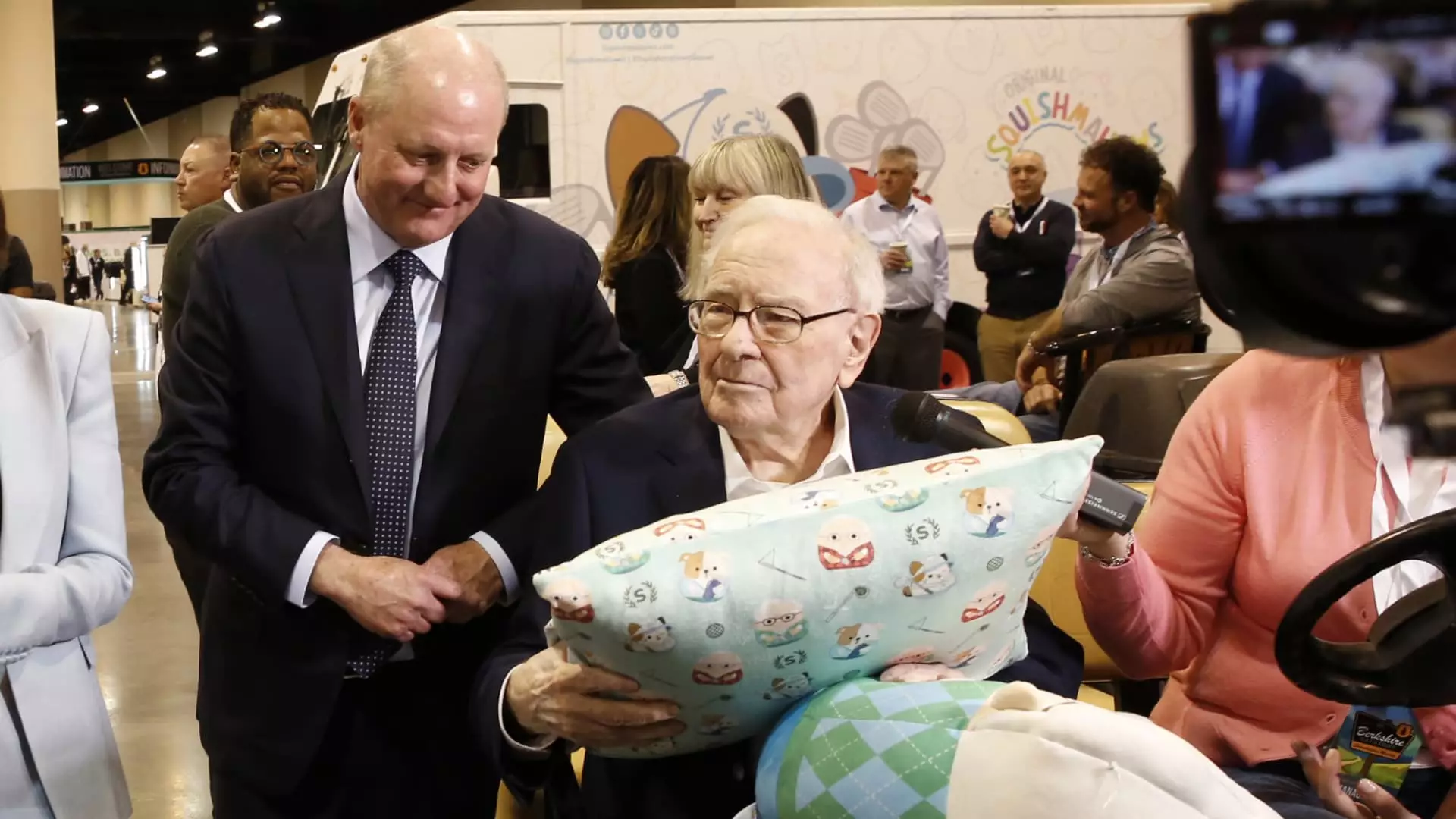Last Monday, retail investors proved their unwavering support for Berkshire Hathaway, channeling over $24 million into its Class B stock. This significant influx of capital isn’t merely a token gesture; it’s a clear indication that everyday traders see value in the firm that Warren Buffett built, even as the investing icon prepares to hand over the reins to Greg Abel. The amount, reported by Vanda Research, marked the highest net inflows since 2016, underscoring a stark contrast to the days of uncertainty when Buffett’s transition plans were in the shadows. For many, this surge feels like a validation, a communal affirmation that Berkshire’s legacy is more than just the whims of a singular leader.
The Unexpected Reaction to Buffett’s Exit
The timing of this influx is particularly intriguing, given that shares of Berkshire Hathaway dropped over 5% during a particularly tumultuous trading day—one of its worst in recent history. This downturn was triggered by Buffett’s surprise announcement, revealing his intent to step down as CEO at the end of the year. Despite the shockwaves sent through the investment community—where the image of Buffett looms large—retail investors appear undeterred. It’s as if they recognize that the steady hands at Berkshire will extend past the legendary ‘Oracle of Omaha.’ In an age where CEO transitions often cause panic among investors, the robust vote of confidence from retail traders indicates they may believe in a broader, more resilient narrative concerning Berkshire’s future.
Strengthening Bonds Through Shared Sentiment
The annual shareholders’ meeting in Omaha is a captivating spectacle, akin to a pilgrimage for many Buffett devotees. Attendees brandish memorabilia and share in a collective admiration for a man who has bridged the gap between complex investing theories and the layperson’s understanding of wealth creation. When Buffett publicly endorsed Abel during the Q&A session, it spread a wave of reassurance throughout the crowd—and, evidently, beyond it. Despite Abel’s perceived lack of stock-picking prowess compared to Buffett, his ascent is viewed positively, especially with Buffett’s continuing presence as chairman. This seems to forge an emotional connection between the investors and the company that transcends traditional metrics.
A Legacy of Value and Stability
Buffett’s legacy is intertwined not just with his past successes but with the future he envisions for Berkshire. Having grown the company from the ashes of a failing textile business into a $1.2 trillion juggernaut, the stakes of Abel’s stewardship are high. Yet, as Buffett stated, he feels confident that the company’s prospects will improve under Abel’s leadership, offering a glimmer of hope during a period of uncertainty. This sentiment suggests a more stable stock future, especially for investors betting on Berkshire as a safe haven amidst looming economic challenges. Institutionally, the company is exceptionally well-positioned, with a staggering $330 billion in cash reserves—enough liquidity to make substantial acquisitions if the market presents opportunities.
The Investment Psyche: Fear Versus Confidence
It is essential to understand the psychological landscape of the average investor during this transition. The customary fear that accompanies a leadership shakeup has been met head-on by a wave of optimism within the retail sphere. While traditional stock market wisdom would counter that uncertainty often leads to selling, the uptick in Berkshire’s Class B stock reveals a fascinating divergence from this norm. Investors seem poised, perhaps wagering that the turbulence ahead provides an opportunity to capitalize on Berkshire’s growth potential. Much like Buffett’s investment philosophy—where he often buys when others are fearful—the current retail investor sentiment leans toward calculated risk-taking.
Charting the Course Ahead
What’s next for Berkshire Hathaway under Greg Abel? That question looms large in the minds of investors, and initial signs indicate an appetite for confidence in this new chapter. Critics might argue that Abel’s lack of standout stock-picking abilities could pose risks, yet many retail investors seem to recognize the larger strategic vision that Berkshire represents. As Buffett himself has reassured shareholders about his continued involvement, the market appears willing to follow the lead of these two seasoned figures in navigating whatever challenges lie ahead.
Berkshire has historically outperformed indices like the S&P 500, and with the stock still up 13% this year, there is a narrative of resilience that retail investors are keen to hold on to. While some might await doom and gloom with the CEO transition outlining an uncertain path, many investors embody a refreshing outlook that boldly embraces the investment opportunities Berkshire will offer in the years to come. As the ordinary investor steps into this evolving landscape, their collective optimism may well redefine our understanding of market confidence in the face of change.

